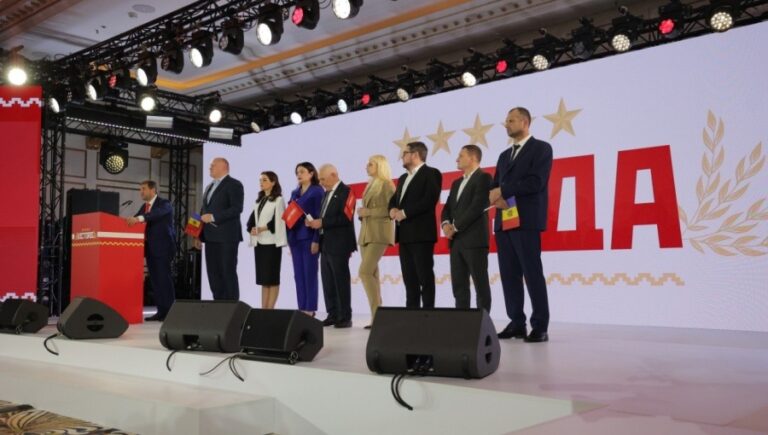Moldovan opposition politicians announced the formation of a new pro-Russian political bloc at a conference hosted by fugitive Moldovan oligarch Ilan Shor in Moscow.
Moldova is scheduled to hold presidential elections on October 20th and parliamentary elections in 2025. This scenario would become more likely if the pro-EU ruling Action Solidarity Party (PAS) loses its parliamentary majority and President Maia Sandu fails to win re-election. , which would seriously jeopardize the country’s European integration.
Although Scholl was sentenced to 15 years in prison for so-called multibillion-dollar bank fraud in his home country, he remains very influential in Moldova.
The congress held on April 21 by the pro-Russian political bloc declared by Mr. Scholl is the first step towards bringing together a more complex anti-EU opposition in Moldova, which will likely include former President Igor Dodon’s Socialist Party. It became.
The pro-Russian political bloc announced by Mr. Schor in Moscow is named “Victory” and includes the oligarch’s new party Chance (Sansa) and the old Renaissance party, which has been absent from politics for many years but has recently been revived by several defected members. It rallies the party. From PSRM.
Several other smaller political instruments joined the two main partners of the Victory Bloc, the Alternative Salvation Army of Moldova FASM Party and the Victoria Party.
Moldova’s closest ally, Marina Tauber, became secretary of the newly formed political bloc’s executive committee.
The meeting, hosted by Schor in Moscow, was also attended by pro-Russian Governor of Gagauzia Autonomous Region Evgenia Gutul and Chairman of the Gagauzia People’s Assembly Dmitry Konstantinov. Pro-Russian autonomous regions enjoy a special constitutional status, making them important regions for Russian-organized hybrid warfare.
Position before election
The formation of political blocs has no formal relevance to Moldova’s parliamentary elections, and political parties must be registered as electoral blocs in order to hold elections on the basis of a joint list. However, the new political organization is fully operational ahead of the presidential election, with candidates registered on an individual basis.
Ilan Shor’s bloc cannot run directly against front-runner Sandu in the October 20 presidential election, but is reportedly aiming to field a single candidate. According to the poll, the candidate will likely come in third place in the first round but become the kingmaker in the second round.
Although there are currently no such candidates, Mr. Scholl has been exceptional at shifting strong electoral support to unknown candidates such as current Gagauzia Governor Evgenia Gutul.
In next year’s parliamentary elections, Mr. Schor’s bloc clearly hopes to negotiate with Mr. Dodon’s Socialist Party to gain a political majority and win enough votes to oust PAS.
Dodon remains ranked as the second most popular candidate ahead of the presidential election, and his Socialist Party is Moldova’s strongest opposition force. Therefore, it is unlikely that those managing the hybrid war against the pro-EU authorities in Chisinau are ignoring them.
However, Dodon and his party are a moderate anti-EU, nationalist, or Eurosceptic party in Moldova that aims to absorb pro-Russian voters who do not want to be directly associated with Russia’s invasion of Ukraine. As such, it is more beneficial for Moscow.

